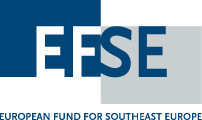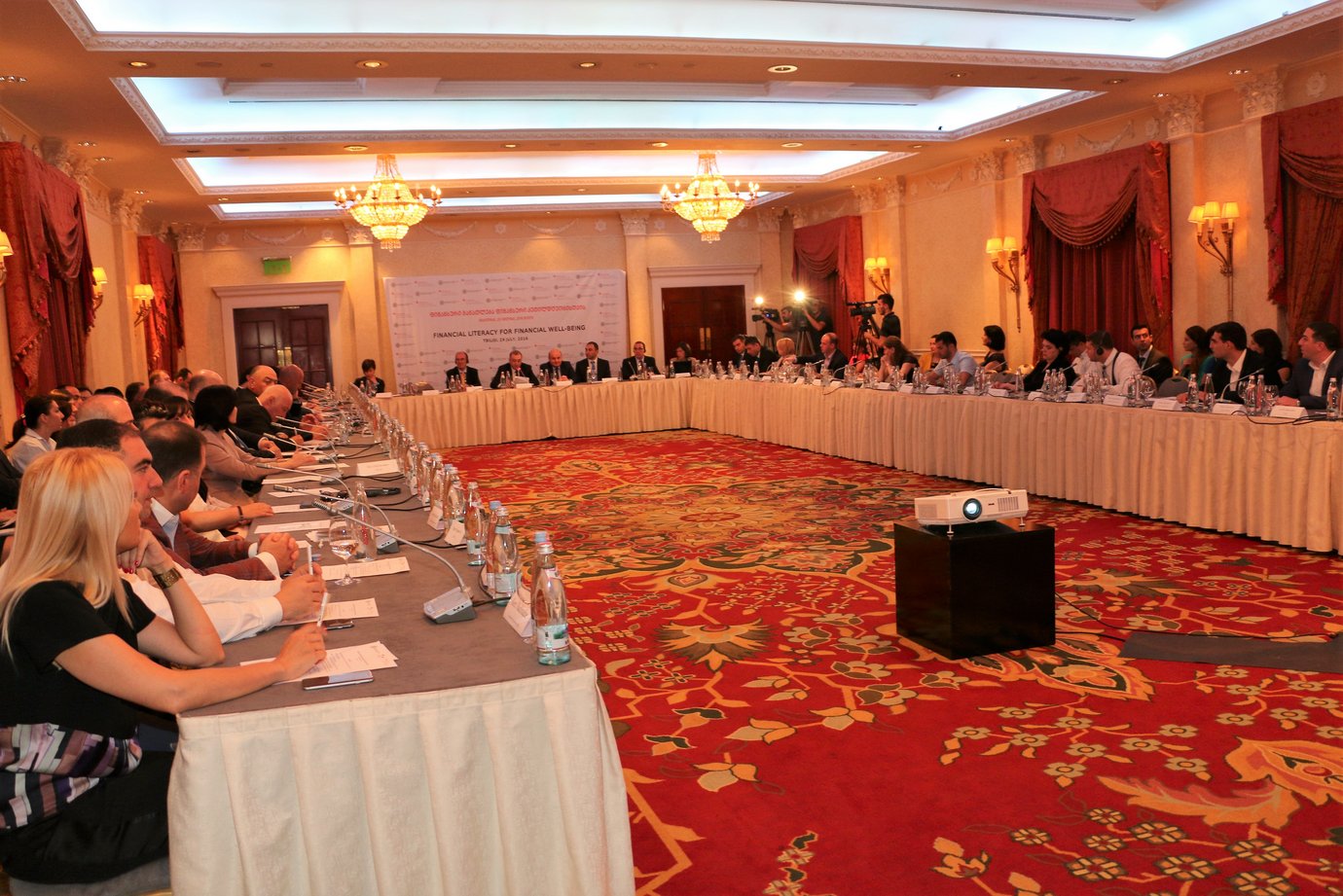Results of a study presented on July 29 show Georgians have an intermediate understanding of finance. The sponsors of the research also introduced two new brochures that explain key aspects of personal money management to help residents broaden their knowledge.
The study, initiated by National Bank of Georgia (NBG), the country’s central bank, supported by the Development Facility of the European Fund for Southeast Europe (EFSE DF), and implemented by the research organization Sonar, asked 1,100 Georgians a range of questions designed to gauge their financial knowledge, behaviour and attitudes. The results were presented during a conference titled "Financial Literacy for Financial Well-being”, which was organised with the support of the Savings Banks Foundation for International Cooperation (SBFIC). The study suggests Georgians have a satisfactory grasp of many financial concepts such as simple interest, risk-return and inflation. Well over half of those questioned said they save money in some way or another, and 87% noted that they take at least some responsibility for their financial decisions.
However, the results showed a relatively low awareness and usage of banking products and that the vast majority of respondents save only at home and have either only short-term financial goals or none at all. Thus, the study provides interesting insights into knowledge gaps and ways to help citizens become financially empowered and informed. This was the first time Georgia participated in such a study, which was conducted based on OECD/International Network on Financial Education methodology, and the results will be part of the OECD’s comparative report due for release by year’s end.
The National Bank of Georgia also presented two new EFSE DF-sponsored brochures that explain home ownership and foreign currency borrowing for small businesses. The brochure for future home owners discusses key aspects of taking a mortgage loan, including important contract terms and assessing how much potential home owners can borrow, which helps avoid an excessive debt burden. The brochure for small businesses teaches consumers how to realistically assess the risks of foreign currency borrowing, providing easy-to-comprehend and practical advice on strengthening small businesses; this brochure is accompanied by three practical tools which will help small businesses improve financing decisions.
Available in Georgian, Russian and English, the brochures will be distributed via local financial institutions and universities in the coming months. They can also be downloaded from the EFSE website and the central bank website www.nbg.gov.ge.
EFSE DF Committee Member Eva van den Heuvel said, "We are proud to have sponsored the study and participated in the development of the brochures. Both are playing significant roles in improving financial literacy, one of the main goals of the EFSE Development Facility.”
The NBG Governor Koba Gvenetadze said, "Both projects are highly relevant for financial literacy. The results of the study are important for developing financial literacy programs and setting benchmarks within the frames of the national financial education strategy. The brochures, on the other hand, provide essential advice and practical tools to future homeowners and small businesses. We would like to thank EFSE DF for its continued support in our financial education efforts.”
About the EFSE DF
The Development Facility of the European Fund for Southeast Europe (EFSE DF) was created in 2006 to support the fund’s development finance mandate. It deploys effective, targeted and innovative technical assistance to maximise the impact and extent of the Fund’s development finance mandate in target countries. The services of the facility encompass capacity building and training, financial sector support and applied research with the aim to strengthen the internal capacities and operations of the fund’s partner lending institutions.
The facility operates independently from the fund in a fiduciary arrangement under Luxembourg law. The Development Facility Committee, comprising members from KfW Development Bank, the Swiss Agency for Development and Cooperation, the development bank of Austria OeEB, and the Dutch development bank FMO, is responsible for assessing and approving all project proposals and providing strategic guidance to the facility.
About the European Fund for Southeast Europe
The European Fund for Southeast Europe (EFSE) was initiated by KfW Development Bank with the financial support of the German Federal Ministry for Economic Cooperation and Development (BMZ) and the European Commission. It aims to foster economic development and prosperity in 16 countries in Southeast Europe and the European Eastern Neighbourhood. As access to finance is a key to successfully developing micro, small and medium enterprises (MSMEs), the fund seeks to improve the ability of local financial sectors to ensure adequate and sustainable financing. Although it offers funding for private households in the form of home improvement loans, the EFSE primarily provides long-term finance for MSMEs. Funds are channelled to these loan customers through local partner lending institutions.
Initiated by KfW in 2005 from four multi-donor programs under its management, the EFSE was the first public-private partnership of its kind and the first privately managed fund in development finance to leverage private funding for MSME finance in the target region. Oppenheim Asset Management Services S.à r.l., Luxembourg acts as the EFSE’s Fund Manager and Finance in Motion GmbH, Germany as Advisor.
For more information about the European Fund for Southeast Europe, please visit: www.efse.lu
About the National Bank of Georgia
The National Bank of Georgia (the NBG) is the central bank of Georgia and its major objective is to ensure price stability. Its status is defined by the Constitution of Georgia. The NBG is independent in its activities; its rights, obligations, and principles of its activities are defined in the Organic Law of Georgia on the NBG.
The NBG implements monetary policy based on the main directions of the monetary and foreign exchange policy defined by the Parliament of Georgia. It holds, keeps and disposes the international foreign reserves of the country. Through its regulation and monetary instruments, the NBG is responsible for ensuring the fulfillment of the basic functions and objectives assigned to it by law.
The NBG supervises the financial sector for supporting financial stability and transparency of the financial system, as well as for protecting the rights of the financial sector’s consumers and investors. To that end, financial education constitutes one of the priority areas for the NBG.
For more information about the National Bank of Georgia, please visit : www.nbg.gov.ge
Media contact EFSE
Eric Culp
Press Officer
e-mail: press@efse.lu
Tel: +49 (0)69 271 035-307
Media contact National Bank of Georgia
Kakha Barabadze
Head of PR and International Cooperation Division
email: kakha.barabadze@nbg.gov.ge
Tel: (+995) 32 2406 222
Get in touch
Interested in learning more about how the fund works, or seeking partnership opportunities? Contact an EFSE representative today.


